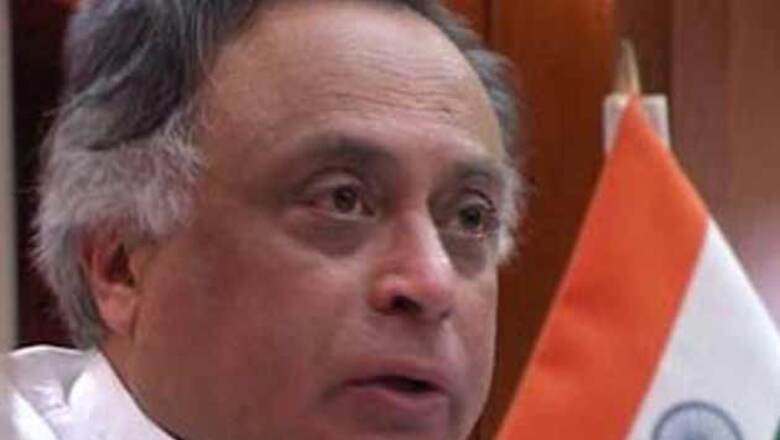
views
Cancun: Environment Minister Jairam Ramesh has been praised for his role as a bridge-builder on contentious issues at the UN climate conference here which ended with a deal to curb global warming, including a $ 100 billion fund to help developing countries.
The two-week long conference closed on Friday with Cancun Agreement, which marked some progress for finance, technology, adaptation and transparency, but isn't viewed as a decisive boost for combating climate change.
"The minister (Ramesh) has been instrumental in bridging gaps, Mohamed Aslam, the environment minister of Maldives, told PTI.
"He has been reaching out to the AOSIS nations as well as to developed countries," he said.
Aslam was referring to the Alliance of Small Island States, which are most vulnerable to climate change and want developed countries as well as emerging economies, especially China and India, to take on hefty legally binding emission cuts.
The UN climate conference on early hours of Saturday reached a "compromise" to set up a $ 100 billion 'Green Fund' to fight global warming, a decision India described as an "important step forward", but there was no agreement on
extending the landmark Kyoto Protocol on emissions cuts beyond 2012.
"We are very happy with the text," Ramesh earlier said, noting that the major emerging economies - Brazil, South Africa, India and China (BASIC) - had welcomed the decision.
"Cancun represents an important step forward," he said.
Progress at the conference includes a broad agreement on technology-sharing mechanism that will ensure that poor and vulnerable countries are able to access green technologies easily and in a cost-effective manner.
A 'Green Fund' has been set up that is expected to mobilise $ 100 billion per year by 2020, which will be given to developing countries for adaptation and mitigation purposes.
The nitty-gritty of the technology and finance mechanism still needs to be worked out. Bolivia was the sole country to oppose the decision in Cancun, but was eventually overruled.
According to Ramesh, many of India's contributions had been incorporated in the text, including the International Consultation and Analysis, which is a transparency mechanism to review whether developing countries are carrying out their domestic mitigation actions.
Welcoming Ramesh's remarks, Edna Molewa, environment minister of South Africa, acknowledged that certain differences existed between BASIC countries but dismissed that deep cracks existed within BASIC.
"Every country has sovereign positions and differing opinions on some issues," Molewa told PTI. "But there are many areas we agree on and we try and work together as much as possible."
On the other hand, environmental activists said that Ramesh had jeopardized India's interest.
"At Cancun the move is to replace the regime to voluntary targets for all. India s shift in policy to support this regime will be disastrous for an effective and equitous agreement," wrote Sunita Narain, from the Centre of Science and Environment in New Delhi.
















Comments
0 comment